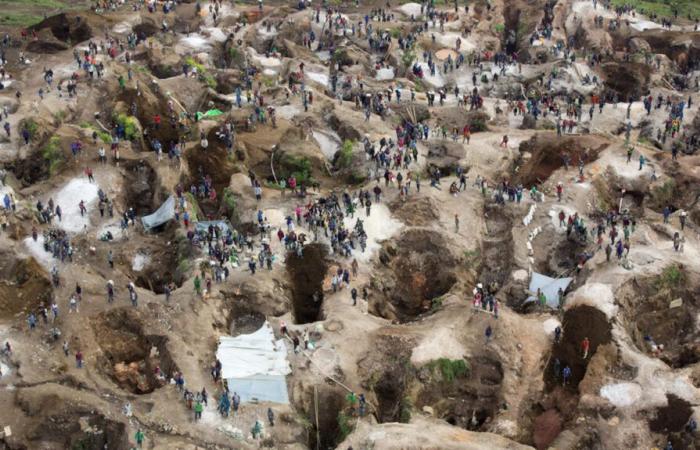In the east of the DRC, since the capture of the Rubaya mining site in Masisi territory by the M23 rebels, supported by Rwanda, the authorities of the North Kivu province have complained about the shortfall in exploitation ores. Before the war, the mining sector contributed more than 40% to the provincial budget. Today, North Kivu says it has had its coltan production cut by 100 tonnes per month, for a value of around $7 million.
From our correspondent in Goma,
At the headquarters of Kivu Mineral Resources SARL, one of the companies in Goma that buys minerals, the atmosphere is not good. The company’s turnover is declining due to supply problems. “ We lost mainly in Masisi territory – Rubaya, Ngungu, explains Yvette Mwanza, the general director of the company, also president of the Chamber of mines within the provincial council of the Federation of Congolese Enterprises (FEC), in North Kivu. All these localities produce a lot of coltan [colombite-tantalite, NDLR]. But for coltan, we hardly receive anything anymore. We can easily make 30 tonnes of coltan per month. Now if you take coltan from Maniema, in a whole month you can only receive three tonnes. »
Environ 15 % of global tantalum production
The capture of Rubaya by the M23 affects more than 6,000 artisanal diggers who find themselves unemployed, according to the cooperative of artisanal mining diggers of Masisi. Many diggers have fled, which also worries the UN. “ In North Kivu, the consolidation of M23’s administrative control over the territories of Masisi and Rutshuru in North Kivu allowed it to establish total control over coltan production, underlined Bintou Keita, the head of MONUSCO, during her last visit to the Security Council in New York last September. Trade from the Rubaya region, which is estimated to provide more than 15 % of global tantalum production, generates around $300,000 per month for the armed group. This situation is deeply worrying and must end. »
Buyers’ duty of care
In this context, states and companies must take their responsibility according to civil society. “ All these wars that we live in are fueled by mining, underlines Alexis Muhima, leader of the Mines and Hydrocarbons thematic group within the civil society of North Kivu. And so, for us, if all these states and companies that source minerals from this area respect the duty of care, this will cut any link between the supply of these armed groups with illicit minerals. »
The M23-AFC, last May, announced that it would prohibit its men from accessing mining sites. However, several members of civil society denounce the trafficking of minerals, which are then illegally exported to Rwanda and Uganda.
Business






